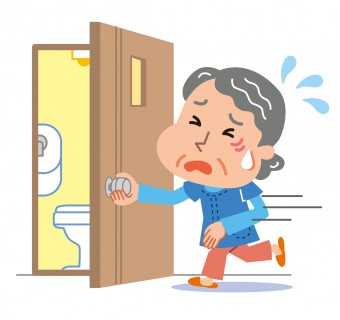
by Mary A. Burns, M.D., FACOG, FPMRS
In medicine, there are quite a few conditions women encounter that they may find too embarrassing to bring up to their doctor. Low libido, bladder leakages, fear of STDs are just a few to name.
However, for the 14 million women who encounter accidental bowel leakage, I think one would agree that this problem would probably jump to the top of the list of embarrassing conditions.
Bowel incontinence, also known as fecal incontinence, prevents you from controlling your bowel movements. You may experience unexpected leaks, or use the bathroom very frequently. Some people experience a combination of these symptoms.
What causes it?
Bowel incontinence is usually an acquired disorder. It may be caused by
- Obstetrical injury from pregnancy or childbirth
- Stroke or advanced age
- Nerve or muscular damage caused by surgery or injury
- Conditions that affect the nerves, such as Diabetes, Parkinson’s Disease, and multiple sclerosis
- Inflammatory bowel disease and irritable bowel syndrome
In rarer cases, bowel incontinence can be the result of congenital disorders.
Some people may suffer from bowel incontinence due to not being able to sense a bowel movement, while others are able to sense a bowel movement but cannot hold it until they reach a bathroom.
Are there treatments for this?
Yes! For many controlling their symptoms with behavioral tips- lifestyle changes, diet modification, bowel retraining, Kegel exercises have been very beneficial. Medications to help control the symptoms may also help.
However, if you have not have success with, or are not a candidate, for more conservative treatments, Medtronic Bowel Control Therapy (Sacral Neuromodulation delivered through the InterStim®) is an FDA-approved reversible therapy that targets the communication between the brain and the nerves that control bowel function. If those nerves are not communicating correctly, the bowel muscles may not function properly and may cause bowel control problems. It has shown in clinical trials to significantly improve quality of life and to stop or greatly reduce accidents! Studies of patients in one year follow up found 70% had at least a 50% reduction in weekly accidents.
So How Do I Talk with My Doctor About This?
Before your appointment, it’s helpful to track your bowel symptoms to you can discuss your situation with your doctor.
Be sure to talk openly and be up-front with your doctor. Don’t minimize your symptoms or the impact that your bowel control problem has on your life.
If your doctor is unwilling or unable to offer you further treatment options, ask for a referral or seek out another doctor who is a specialist–a urogynecologist or colorectal surgeon- these doctors specialize further in treating bowel control problems. Remember that the most important thing is to find a doctor you feel comfortable with and can communicate with. A doctor may have impressive academic credentials, but if he or she doesn’t listen or take your concerns seriously, he or she may not be the right doctor for you.
